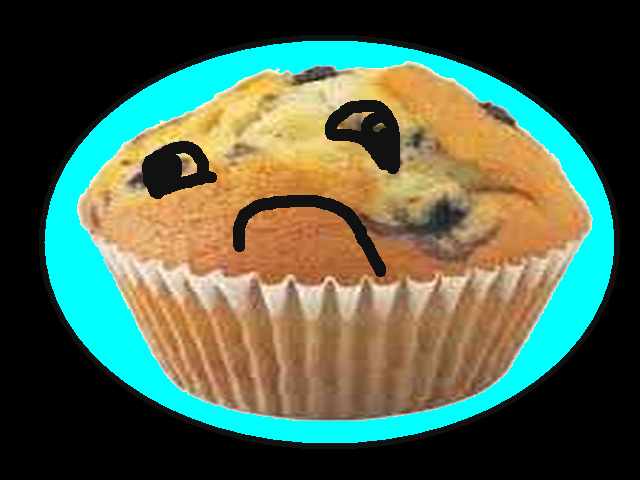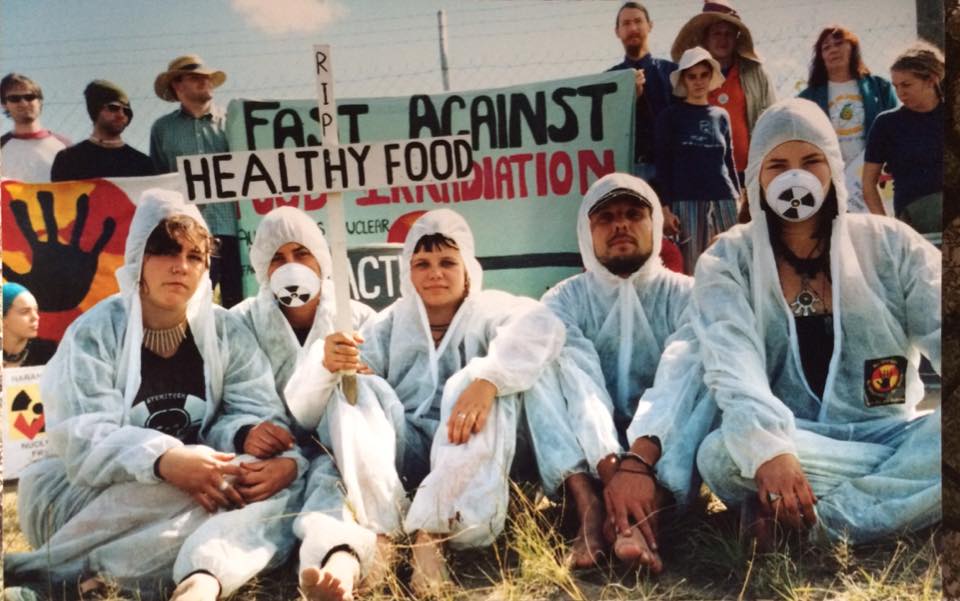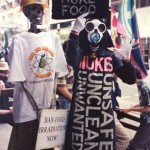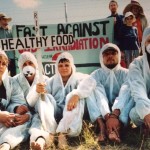
Irradiated superfoods? Say no to the irradiation of blueberries and raspberries!
Once prohibited in Australia and New Zealand, irradiation is now being promoted here – primarily as a quarantine treatment – as a replacement for some post-harvest chemicals. Irradiation, however, brings its own risks to the table…
Recent approvals for commonly eaten fruits and vegetables significantly increase the proportion of irradiated foods in the average Australian and New Zealand diet. So far, Food Standards Australia New Zealand (FSANZ) has approved: herbs, herbal infusions, spices, tomatoes, capsicums, mangoes, pawpaws, mangosteens, carambolas, breadfruit, litchis, rambutans, longans, custard apples, apples, apricots, cherries, nectarines, peaches, plums, honey dews, rockmelons, strawberries, table grapes and zucchini and squash.
They now want to add blueberries and raspberries to that list.
The NSW government has made an Application to Food Standards Australia New Zealand (FSANZ) to irradiate blueberries and raspberries. These berries are considered by many to be “superfoods” and valued for their high antioxidant levels, anthocyanin and Vitamin C content.
Irradiation would see these tiny berries exposed to ionising radiation at doses ranging from 150 Gray (Gy) – 1 kGy. This is equivalent to exposing them to approximately 1.5 million – 10 million chest X-rays (calculated at the low end of chest X-ray exposure).
Ionising radiation changes the molecular structure of food, producing free-radicals, depleting antioxidants such as vitamin C and nutrition, and creating chemical compounds unique to radiation exposure. Numerous scientific studies have shown potential health risks associated with irradiating food. In fact, in 2008 -2009 up to one hundred Australian cats developed neurological disorders linked to the consumption of irradiated cat food. The risk to humans has not been ruled out.
Numerous alternatives exist
Despite this, in Australia and New Zealand, irradiation is being promoted as an “alternative” to certain pesticides, the uses of which have been restricted. The reality is, however, that fruit producers who use chemical pesticides – and opt to irradiate – will use irradiation on top of chemicals. Irradiation is not necessary for quarantine purposes of pest management as both radiation-free and chemical-free options exist. To protect their reputation and the Australian market, these “superfoods” should be produced to maximise their nutritional value and freshness. They should be grown as closely to nature and possible – with neither harmful pesticides nor irradiation.
Processed, not fresh
Once exposed to high levels of ionising radiation, raspberries and blueberries, prized for their natural goodness, can no longer be considered “fresh” – they will, in fact, be “processed. Changes made to fruits and vegetables as a result of processing with irradiation are substantial and significant – and cannot be discerned with our ordinary senses.
Indeed, the test for irradiation is the presence of “radiolytic products” and free radicals. FSANZ confirms: “Irradiation potentially causes both macro and micronutrient changes in foods, depending on the irradiation dose, the food’s composition and environmental conditions.”
Adulterated superfoods?
It is clear that irradiated food is not fresh – it is intentionally and significantly altered. The likely increased transport time coupled with the further processing of blueberries and raspberries will further diminish the nutritional value and appeal of these wonderful fruits.
Consumer nuclear industry
The irradiation industry in Australia and New Zealand is nuclear. All commercially operating irradiation facilities use gamma radiation from radioactive Cobalt-60 sourced from a nuclear reactor in Canada and involve the transport, use, storage and management of radioactive materials. The push to expand the list of irradiated foods supports and aims to legitimise the consumer face of the nuclear industry.
Labelling under threat
Finally, as the irradiation process is, in effect, invisible, labelling is the only mechanism by which a consumer can distinguish between irradiated and non-irradiated food. The mandatory labelling requirements for irradiated food in Australia and New Zealand are under review. It is clear that the industry is keen to increase the amount of food it irradiates and sees labelling as standing in the way to consumer acceptance. There is no assurance in this application that labelling requirements will remain. Irradiated food must be labelled “treated with radiation” or “irradiated –‘
Good food does not need irradiating!
The irradiation of blueberries and raspberries is unnecessary. The perceived pest control benefit to the farmers is outweighed by potential risks to consumers, the environment and the health-promoting nature of berriesl Please let FSANZ and your local food authorities know that you so NO! Together, we can keep irradiation food off our tables!
Saying NO!
Food regulations must pass through the Ministerial Council before becoming law. Each state has at least one state MP on the Council which means each of us have a representative on the Council who can say NO! Let the ministers and decision makers know how you feel about irradiation and labelling to help make a decision in favour of shoppers’ rights. Please make a submission via Food Standards Australia New Zealand and also send your message to your state, territory and federal reps. Information on how to submit, the Ministerial list and a sample letter are available on our TAKE ACTION page.
To get involved in the campaign to stop food irradiation and to ensure that all irradiated food is comprehensively labelled:
Email: foodirradiationwatch@yahoo.com.au
www.foodirradiationwatch.org
LIKE us on FB: https://www.facebook.com/notofoodirradiation/?fref=nf














